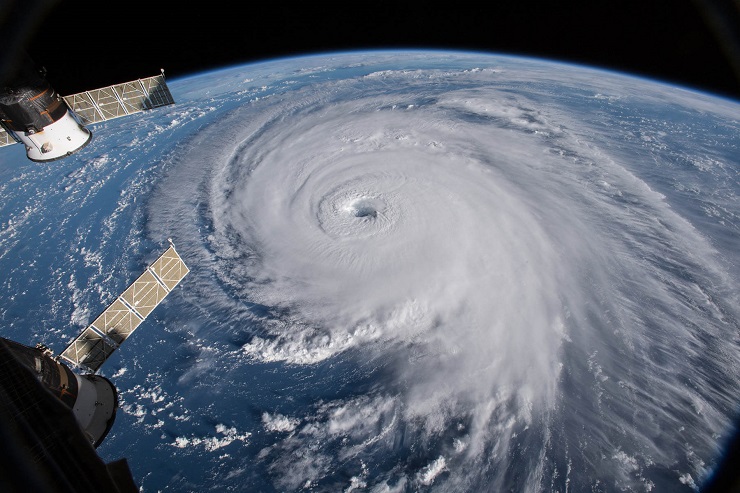In mid-January, the Global Risks Report 2020 was published. The report which was drafted by over 750 international experts and decision makers predicts that the world can expect to see political polarization and a slowdown in economic growth in 2020. The report was developed with the support of researchers from the Oxford Martin School (University of Oxford), the National University of Singapore and the Wharton Risk Management and Decision Processes Center (University of Pennsylvania).
Out of all the survey respondents interviewed to prepare the report, 78% of the experts said they expect “economic confrontations” and “domestic political polarization” to rise in 2020. This could have catastrophic consequences, especially for the environment, as the main threats to humanity will be climate change, biodiversity loss and record-level species extinction rates.
For the first time in the history of the annual Global Risks Report, all of the Top 5 global risks experts have rated according to likelihood over the next ten years are related to the environment. Among the top security risks, the authors of the report cited extreme weather events, human-made environmental damage and disasters that lead to deaths and property damage, failure of climate change mitigation policies pursued by individual governments and large companies, and major biodiversity loss, as well as natural disasters such as earthquakes, tsunamis, volcanic eruptions and geomagnetic storms.
The political landscape is getting polarized, sea levels are rising and climate fires are burning.
As a result of actions taken by humankind, 83% of all mammals and half of the world’s plants have been wiped off the face of the earth. This puts our nutritional food supply and health systems under threat.
In early 2020, scientists noted record temperatures of over 20 degrees Celsius in Antarctica for the first time.
The coronavirus epidemic has posed a new challenge for humanity.
Following the huge jump in recorded cases of coronavirus (COVID-19) infections in China, scientists warn that the epidemic could spread to about two-thirds of the world’s population. To be more specific, this was the opinion expressed on February 13 this year in an interview with Bloomberg given by Ira Longini, an adviser to the World Health Organization and Co-director of the Center for Statistics and Quantitative Infectious Diseases (CSQUID) in Florida.
According to the researcher, based on her tracking of studies of the virus’s transmissibility in China, the number of infections could reach several billion. The current official tally of people infected with the virus in China is nearing 64,000.
The modern world is becoming more and more fragile. As Russian President Vladimir Putin noted on February 5, 2020: “Unfortunately, in our days humanity has once again found itself on a dangerous brink: regional conflicts are multiplying, threats of terrorism and extremism are growing, and the arms control system is being destroyed. The global economy is also in an unstable state.”
Fundamental shifts in the global geopolitical landscape are exacerbating current rifts.
The collapse of the Soviet Union almost 30 years ago drastically changed the power balance. Back then, the financial elite in the West were forced to look back and reflect on how social issues had been solved in the USSR, and the Soviet Union itself served as a kind of antipode to the West, but the situation was to change radically. Members of high society in developed capitalist states began running “rogue”, and as a result, the gap between the wealthy people and the poor has widened massively. These are the most glaring examples of inequality witnessed in modern history.
It was this unbridled race to get rich that acted as a distraction from global problems and calls to take action, and despite the global community’s celebrated achievements, it is now being confronted with more new negative phenomena, for which there is currently no solution in sight.
This constant pursuit of disproportionate new incomes has many negative consequences, which include a growing distrust of the global elites, as well as a growing number of mass workers’ protests, who are fighting for their rights.
Apart from the growing number of conflict situations, two major global problems remain the primary axis in international politics:
– the widening gap between the rich and poor (this process ballooned out of control after the collapse of the USSR);
– ecology, primarily problems caused by climate change.
This year, the world can expect economic and political polarization to intensify. That is why more than ever before, humanity needs world leaders to take effective steps to avert new threats and challenges.
Geopolitical turbulence is making the world more unstable, which is why the world urgently needs to focus on working together to deal with common risks.
Russia has repeatedly called for the proactive coordination of actions aimed at ensuring strategic stability and developing a fair world order.
Moscow’s concrete steps have achieved clear-cut positive results. In particular, Russian diplomacy has been playing a decisive role in stabilizing the situation in Syria and launching the Syrian Constitutional Committee process. The development of Eurasian integration has produced tangible results. Russia has managed to strengthen cooperation with China, India and other states in Eurasia, as well as with Latin American countries. The dialogue with African countries has been taken to a new level.
Russia will devote its energy to make the most of the opportunities it has in chairing the SCO and BRICS group. Russia will continue to broach topical issues in the UN Security Council, as well as in APEC-G20 and other multilateral structures.
Veniamin Popov, Director of the Center for Partnership of Civilizations at MGIMO (Moscow State Institute of International Relations) of the Russian Ministry of Foreign Affairs, Ambassador Extraordinary and Plenipotentiary, exclusively for the online magazine “New Eastern Outlook.”

